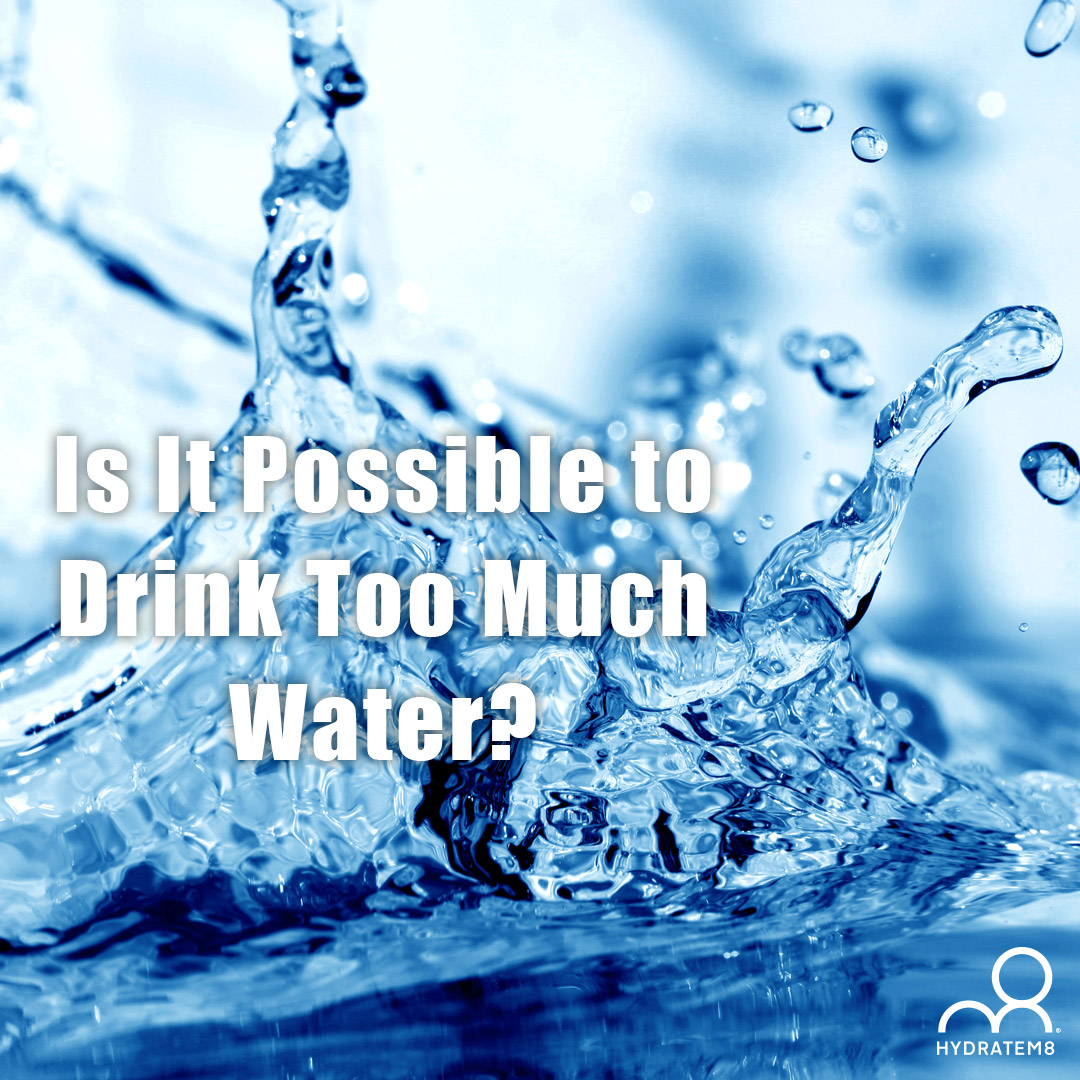Overhydration
In theory, yes. Before you panic, it’s not as common as dehydration but it can be very serious.
What is overhydration?
The balance of water in the human body is well regulated and many of us struggle to reach the 2 litres per day target. However, there are many processes and systems within the body that require water just to work effectively. Without it, you can start to feel the effects of dehydration setting in like thirst, headaches and dry lips and skin.
Overhydration, on the other hand, can lead to a condition called water intoxication which affects the electrolyte levels in the blood. Electrolytes are natural compounds responsible for controlling many physiological functions. They include sodium, potassium and chloride. These salts and minerals conduct electrical impulses in the body so allow things like muscle contraction to take place, which is important, for example, for the beating of your heart.
Drinking too much water can dilute your sodium levels and cause a condition called hyponatraemia. It is this which is of most concern in cases of overhydration.
Hyponatraemia: What is it?
Hyponatraemia is a common electrolyte disorder where the level of sodium drops too low. It can cause symptoms, including:
- Headache
- Nausea
- Vomiting
- Reduced energy
- Swelling of the tummy or legs
- Signs the heart is working harder like extra heartbeat sounds
Often, hyponatraemia is caused by an underlying condition rather than drinking too much water.
What causes overhydration?
An imbalance of fluid in the body is largely responsible for overhydration. Your body may take in or hold on to more water than the kidneys are able to process (water retention). There are some conditions which cause the body to hold on to water, like:
- Kidney conditions
- Congestive heart failure
- Uncontrolled diabetes
- Liver disease
There are also some conditions and substances which increase your thirst, such as:
- Diuretics
- MDMA (ecstasy)
- Schizophrenia
Should I be worried?
Generally, no. Drinking the recommended amounts of water is deemed to be safe. The Eatwell Guide states that everyone should drink 6-8 glasses of fluid per day. That includes water, sugar-free drinks as well as tea and coffee.
But everyone is individual and your needs may vary according to the temperature, illness and your physical activity, for example. Drinking a little more than the recommended daily amount is unlikely to cause you harm.
If you’re healthy, the colour of your urine is usually a good indicator of how hydrated you are. Darker urine is usually a sign that you need more water, while a pale-yellow colour is a good target as this means you are adequately hydrated. Check out our pee2see campaign or if you have already purchased one of our hydration tracker bottles, you ill have received one of our pee charts. The chart is a good indicator of how hydrated you are and it’s easy to understand.
Sources
Biswas, M and Davies, J, S. (2007). Hyponatraemia in Clinical Practice. Postgrad Med J: 83(980), pp 373-378.
National Health Service. (2019). The Eatwell Guide. Available at: https://www.nhs.uk/live-well/eat-well/the-eatwell-guide/

